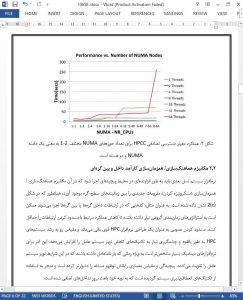ABSTRACT
The move towards high-performance computing (HPC) applications comprised of coupled codes and the need to dramatically reduce data movement is leading to a reexamination of time-sharing vs. space-sharing in HPC systems. In this paper, we discuss and begin to quantify the performance impact of a move away from strict space-sharing of nodes for HPC applications. Specifically, we examine the potential performance cost of time-sharing nodes between application components, we determine whether a simple coordinated scheduling mechanism can address these problems, and we research how suitable simple constraint-based optimization techniques are for solving scheduling challenges in this regime. Our results demonstrate that current generalpurpose HPC system software scheduling and resource allocation systems are subject to significant performance deficiencies which we quantify for six representative applications. Based on these results, we discuss areas in which additional research is needed to meet the scheduling challenges of next-generation HPC systems.
1. INTRODUCTION
System software stacks for next-generation high-performance computing (HPC) systems face a range of scheduling and resource allocation problems due to changes in applications and hardware. For example, large-scale scientific applications are beginning to perform simulation and analysis concurrently instead of sequentially. Also, hardware memory and network bandwidth restrictions and potential system power caps motivate the need to minimize data movement and power down unneeded hardware components whenever possible.
6. CONCLUSION & FUTURE WORK
In this document we presented emerging scheduling challenges associated with large-scale high performance applications. We focused on the node-level mechanisms that new frameworks must provide to schedule selected HPC applications. Among the forthcoming needs are the ability to optimize performance or energy across complex exascale systems. We quantified the impact of the new scheduling challenges faced by extreme-scale systems. As future work, we plan to investigate a set of scheduling challenges which include: How do we efficiently integrate cooperative and coordinated scheduling across multiple nodes? Which coordination/synchronization mechanisms between node-level schedulers must be provided by the new frameworks? How do we efficiently handle high-level provisioning policies through low-level scheduling mechanisms? What kind of interfaces must be provided by the node-level schedulers to the provisioner? Which metrics must be reported by the node-level schedulers to the provisioner?










